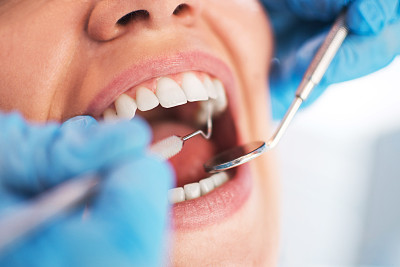Exploring the Top Countries for Superior Dental Care and Effective Treatment of Oral Health Issues
original:health91192025-04-16 11:35:32
Summary: This article delves into the premier countries known for their exceptional dental care and efficient oral health treatment. We explore the significance of advanced dental technology, the expe
Summary: This article delves into the premier countries known for their exceptional dental care and efficient oral health treatment. We explore the significance of advanced dental technology, the expertise of dental professionals, affordability of treatment, and the overall patient experience. From the meticulous practices in Sweden to the innovative techniques in the United States, and from the cost-effective options in Mexico to the holistic care approach in Japan, this article serves as a comprehensive guide for those seeking superior dental care globally. Readers will gain insight into the unique attributes of each country, understanding what makes them stand out in the realm of oral healthcare.
1. Advanced Dental Technology and Innovations

The first aspect to consider when exploring top countries for dental care is their advancements in technology. Countries like the United States and Germany are at the forefront of dental innovation, leading in areas such as 3D imaging, laser technology, and computer-assisted surgery. These technologies enhance precision and minimize discomfort during procedures, ultimately leading to better outcomes for patients.
Moreover, dental laboratories in these countries employ state-of-the-art equipment, ensuring that prosthetics and restorations are crafted to the highest standards. The integration of digital dentistry has revolutionized the way dental practices operate, making procedures quicker and more efficient.
Another notable point is the continuous investment in research and development. Countries like Sweden invest heavily in dental education and technology, ensuring practitioners are well-equipped with the latest techniques and treatments. This commitment to innovation is pivotal in maintaining high standards of oral health care.
2. Expertise of Dental Professionals
When it comes to superior dental care, the expertise of dental professionals plays a crucial role. In countries such as Canada and Australia, the training and education required to become a dentist are rigorous, ensuring that graduates are well-versed in both theory and practical applications.
Furthermore, countries with a structured dental care system, like Switzerland, promote continuous education among practitioners. Dentists frequently update their skills through workshops, seminars, and conferences, allowing them to stay abreast of the latest developments in dental science.
Additionally, many of these professionals specialize in various fields, such as orthodontics, periodontics, and cosmetic dentistry. This specialization enables them to provide tailored treatment plans that cater to the specific needs of patients, thus enhancing the overall quality of care.
3. Affordable Dental Care Options
While many countries excel in providing quality dental care, affordability can be a significant concern for patients. Mexico has become a sought-after destination for dental tourism, offering high-quality services at a fraction of the cost compared to the United States. Many clinics employ certified professionals who use advanced technology, making dental care accessible for a wider population.
In addition to Mexico, countries like Costa Rica provide excellent dental care at competitive prices, attracting patients from North America. The affordability does not compromise the quality, as many practitioners are trained in leading institutions worldwide, ensuring they deliver exceptional care.
Moreover, nations like Thailand and the Philippines are increasingly recognized for their affordable dental services, with numerous clinics specializing in cosmetic and restorative dentistry. This trend emphasizes that quality dental care does not have to be prohibitively expensive, allowing more individuals to prioritize their oral health.
4. Overall Patient Experience and Care
The final aspect worth exploring is the patient experience during dental treatments, which varies significantly across countries. Patients in countries like Japan often benefit from a holistic approach to dental care. This involves not only treating oral health issues but also promoting overall well-being, incorporating diet and lifestyle adjustments.
Furthermore, the patient-centered care model adopted in nations like Norway ensures that patients are treated with empathy and respect. This approach fosters an environment of trust, encouraging individuals to seek regular dental care without fear of judgment or discomfort.
Additionally, the role of bilingual staff in countries with high rates of international dental tourism, such as Hungary, cannot be overlooked. Having staff who can communicate effectively with patients from various backgrounds enhances the overall experience, making it easier for patients to express their concerns and preferences.

Summary:
In conclusión, exploring the top countries for superior dental care reveals a wealth of options characterized by advanced technology, specialized professionals, affordable treatment, and a focus on patient experience. Each of these nations brings unique strengths to the table, ensuring that patients can find effective solutions for their oral health needs.
This exploration not only highlights the advancements in global dental care but also encourages individuals to consider their options when seeking treatment. By understanding the strengths of these countries, patients can make informed decisions that contribute to their oral health journey.
This article is published by HEALTH9119 Medical Health Network https://www.health9199.com arrangement